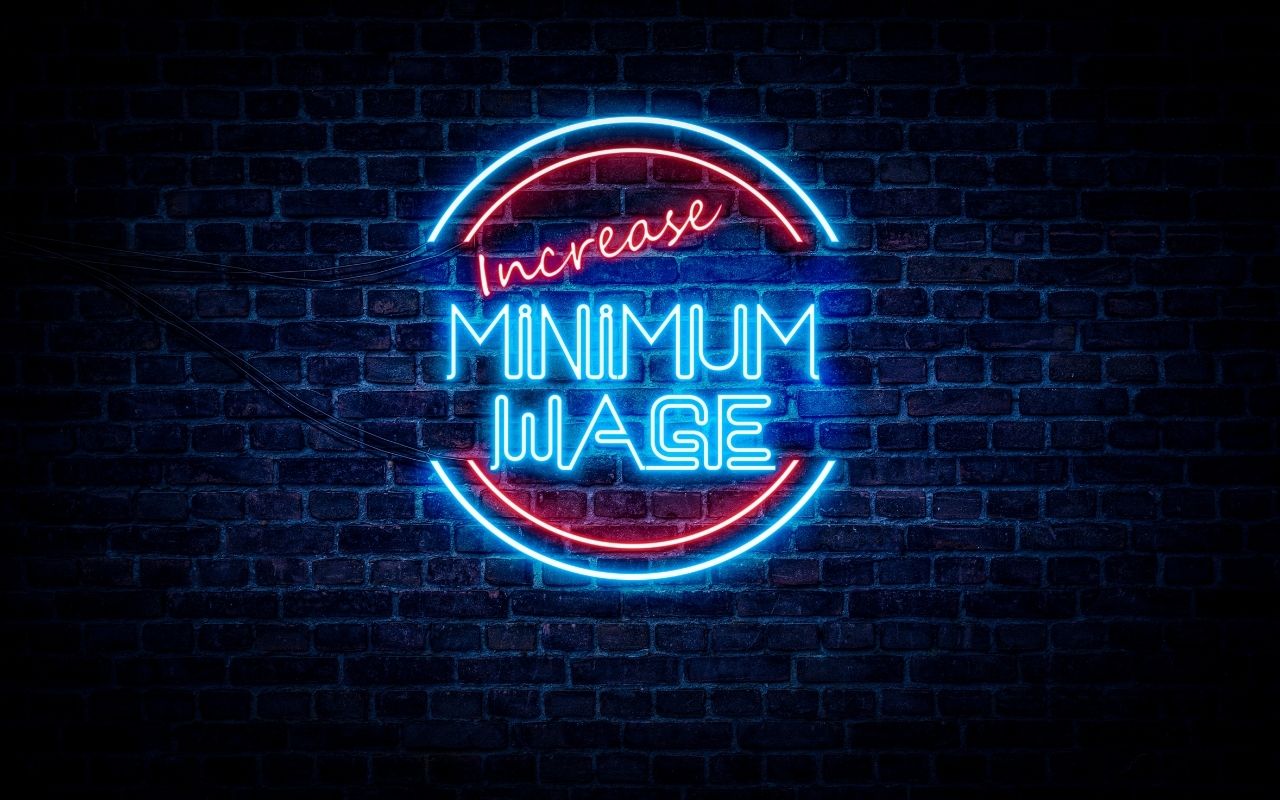Minimum wage laws in the U.S. vary at the federal and state levels, impacting millions of workers. While the federal minimum wage remains at $7.25 per hour, many states have implemented higher rates to keep up with inflation and cost-of-living adjustments. Employers must comply with both federal and state laws, ensuring workers receive the highest applicable wage.
Federal Minimum Wage vs. State Minimum Wage: Key Differences
The federal minimum wage, established under the Fair Labor Standards Act (FLSA), serves as the baseline pay rate for non-exempt workers. However, states can set their own rates, often exceeding federal requirements.

If a state’s minimum wage is higher than the federal rate, employers must adhere to the state’s standard. Certain states have no established minimum wage, meaning the federal rate applies.
List of U.S. Minimum Wage Rates by State as of 2025
Below is the updated list of minimum wage rates by state as of 2025:
| State | Minimum Wage (2025) | Tipped Wage | Notes |
| Alabama | $7.25 (Federal) | $2.13 | No state minimum wage |
| Alaska | $11.73 | $11.73 | Adjusted annually for inflation |
| Arizona | $14.35 | $11.35 | Increased per state law |
| Arkansas | $11.00 | $2.63 | State-mandated increase |
| California | $16.00 | $16.00 | No separate tipped wage |
| Colorado | $14.42 | $11.40 | Annual cost-of-living adjustments |
| Connecticut | $15.69 | $6.38 | Scheduled increase to $16 in 2026 |
| Delaware | $13.25 | $2.23 | Gradual increase to $15 by 2026 |
| Florida | $13.00 | $9.00 | Set to increase to $15 by 2026 |
| Georgia | $7.25 (Federal) | $2.13 | State rate of $5.15 applies only in limited cases |
| Hawaii | $14.00 | $12.00 | Increasing to $16 in 2026 |
| Idaho | $7.25 (Federal) | $3.35 | No planned increases |
| Illinois | $14.00 | $8.40 | Will reach $15 in 2025 |
| Indiana | $7.25 (Federal) | $2.13 | No planned increases |
| Iowa | $7.25 (Federal) | $4.35 | No planned increases |
| Kansas | $7.25 (Federal) | $2.13 | No planned increases |
| Kentucky | $7.25 (Federal) | $2.13 | No planned increases |
| Louisiana | $7.25 (Federal) | $2.13 | No state minimum wage |
| Maine | $14.15 | $7.08 | Adjusted for inflation |
| Maryland | $15.00 | $3.63 | Increase from 2024 |
| Massachusetts | $15.00 | $6.75 | No planned increases |
| Michigan | $10.33 | $3.93 | Adjusted annually |
| Minnesota | $10.85 (Large Employer) | $8.85 (Small Employer) | Adjusted annually |
| Mississippi | $7.25 (Federal) | $2.13 | No state minimum wage |
| Missouri | $12.30 | $6.15 | Gradual increase to $15 by 2026 |
| Montana | $10.30 | N/A | No tipped wage exception |
| Nebraska | $12.00 | $6.00 | Increasing to $15 by 2026 |
| Nevada | $12.00 | $10.25 | No separate tipped wage |
| New Hampshire | $7.25 (Federal) | $3.26 | No state minimum wage |
| New Jersey | $15.13 | $5.26 | Adjusted annually |
| New Mexico | $12.00 | $3.00 | No planned increases |
| New York | $16.00 (NYC, Long Island, Westchester) | $15.00 (Rest of State) | Adjusted annually |
| North Carolina | $7.25 (Federal) | $2.13 | No planned increases |
| North Dakota | $7.25 (Federal) | $2.13 | No planned increases |
| Ohio | $10.45 | $5.25 | Adjusted for inflation |
| Oklahoma | $7.25 (Federal) | $2.13 | No planned increases |
| Oregon | $14.20 (Standard) | $13.20 (Non-Urban) | Adjusted annually |
| Pennsylvania | $7.25 (Federal) | $2.83 | Proposed increase to $15 by 2026 |
| Rhode Island | $14.00 | $3.89 | Set to reach $15 in 2025 |
| South Carolina | $7.25 (Federal) | $2.13 | No state minimum wage |
| South Dakota | $11.20 | $5.60 | Adjusted annually |
| Tennessee | $7.25 (Federal) | $2.13 | No state minimum wage |
| Texas | $7.25 (Federal) | $2.13 | No planned increases |
| Utah | $7.25 (Federal) | $2.13 | No planned increases |
| Vermont | $13.67 | $6.84 | Adjusted for inflation |
| Virginia | $12.00 | $2.13 | Increasing to $15 by 2026 |
| Washington | $16.28 | $16.28 | Highest state minimum wage |
| West Virginia | $8.75 | $2.62 | No planned increases |
| Wisconsin | $7.25 (Federal) | $2.33 | No planned increases |
| Wyoming | $7.25 (Federal) | $2.13 | No planned increases |
States Without a State Minimum Wage: What It Means for Workers
In states without a minimum wage law, workers are subject to the federal minimum wage of $7.25 per hour. This primarily affects employees in Alabama, Louisiana, Mississippi, South Carolina, and Tennessee.
Overtime and Premium Pay Laws: What Employees Should Know
Workers covered under the FLSA are entitled to 1.5 times their regular pay rate for hours worked beyond 40 hours per week. Some states have additional rules for daily overtime or special circumstances.
Annual Adjustments and Future Minimum Wage Increases
Many states have laws that automatically increase the minimum wage based on the Consumer Price Index (CPI) or legislative mandates, ensuring wages keep up with inflation.
Conclusion: How Minimum Wage Laws Impact Workers and Businesses
Minimum wage changes affect both employees and employers. While higher wages boost worker earnings, they may also impact hiring costs for businesses. Staying informed about wage laws is crucial for compliance and financial planning.
| Homepage | uhmychart.org |






